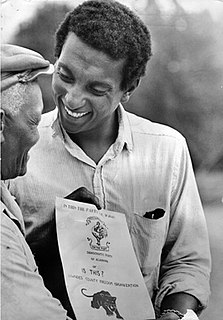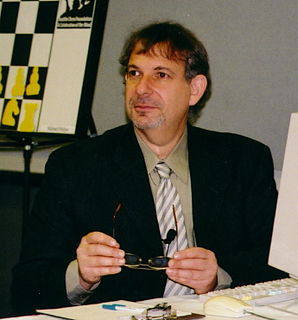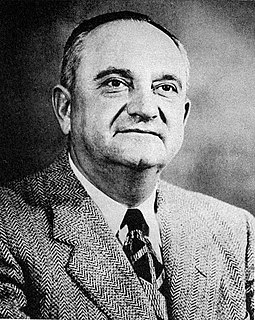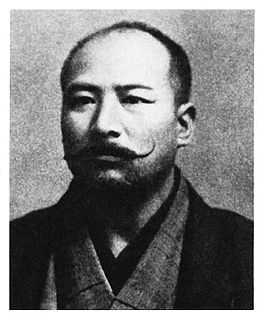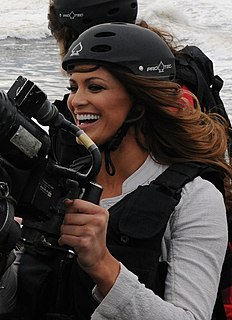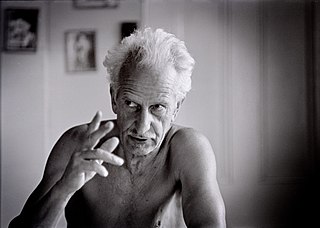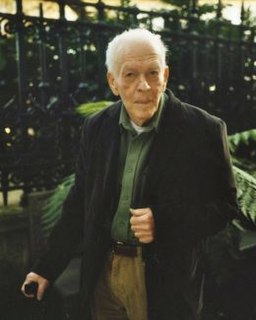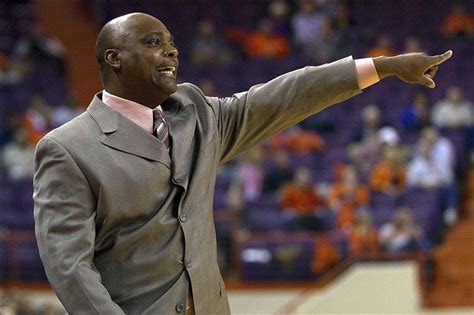A Quote by B. H. Liddell Hart
If you find your opponent in a strong position costly to force, you should leave him a line of retreat as the quickest way of loosening his resistance. It should, equally, be a principle of policy, especially in war, to provide your opponent with a ladder by which he can climb down.
Related Quotes
When you go out on the court whether it be for the championship or just a scrimmage, have confidence that your abilities and what you've learned in your drills are better than your opponent's. This does not mean you should disregard your opponent. Before taking the court for any game, you should do a lot of thinking about what you have to do to beat your opponent and what he must or can do to beat you.
For if we merely take what obviously appears the line of least resistance, its obviousness will appeal to the opponent also; and this line may no longer be that of least resistance. In studying the physical aspect, we must never lose sight of the psychological, and only when both are combined is the strategy truly an indirect approach, calculated to dislocate the opponent's balance.
I believe that good defense embodies seven cardinal principle: reduce the number of your opponent's shots; force your opponent into low percentage shots; control everything within 18 feet; eliminate second shots; no easy baskets; point the ball on all long shots; and prevent the ball from going into the pivot man.
In holding your antagonist, therefore, you should hold him lightly as if your arms were nothing but chains which connect you with him, so that you may stretch or contract them at will when necessary, and pull or push him in any direction you choose. If you pull your opponent or apply your tricks on him by putting from the beginning too much strength in your arms, then you are going to contest with him by means of your power and against the principles of Judo. In doing so, you can never expect to succeed in your contest.
I have found life highly competitive. I accept it. It is useless, merely a hypocritical humbug, to sincerely wish your opponent to win. If you are out to win you are better not wanting to know your opponent, much less grow to like him - and wish him, honestly success over you. I have never functioned that way.
Nonviolent action involves opposing the opponent's power, including his police and military capacity, not with the weapons chosen by him but by quite different means. Repression by the opponent is used against his own power position in a kind of political "ju-jitsu" and the very sources of his power thus reduced or removed, with the result that his political and military position is seriously weakened or destroyed.
If asked how to cope with a great host of the enemy in orderly array and on the point of marching to the attack, I should say: "Begin by seizing something which your opponent holds dear; then he will be amenable to your will." Rapidity is the essence of war: take advantage of the enemy's unreadiness, make your way by unexpected routes, and attack unguarded spots.
Knowing your opponent is a crucial part of emulating and defeating that opponent. But scouting is only the first step. Too many leaders spend countless hours studying an opponent's every move in the search for an edge. The Great Teams understand not only how to scout but also how to exploit the weaknesses of a competitor. These teams analyze every perspective and option and position themselves to take full advantage of any knowledge gained about an opponent.




